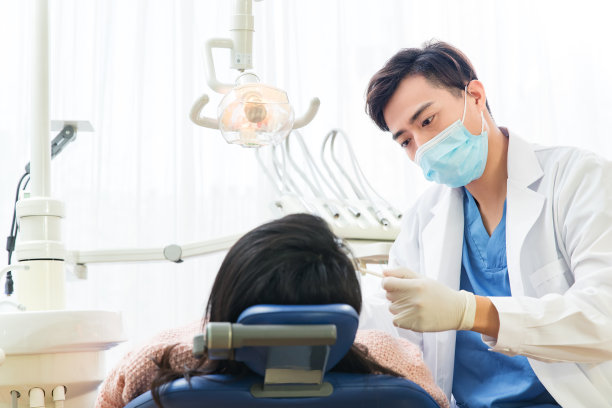The Importance of Extracting a Tooth and How It Affects Your Overall Oral Health and Wellbeing
Summary: Tooth extraction is a crucial aspect of dental care that can significantly impact your overall oral health and wellbeing. While many may view tooth extraction as a last resort, it can prevent further dental issues and improve one’s quality of life. This article explores the reasons for tooth extraction, its effects on oral health, how it aids in maintaining proper oral hygiene, and its psychological benefits. An understanding of these aspects can help individuals make informed decisions regarding their dental health and emphasize the importance of professional dental care.
1. Reasons for Tooth Extraction

Tooth extraction may be necessary for several reasons, with decay being one of the primary culprits. When a tooth is severely decayed, it can lead to infections that threaten not only the tooth itself but also surrounding gums and adjacent teeth. The prompt removal of such problematic teeth can avoid further complications and preserve the integrity of the oral environment.
Another common reason for extraction is overcrowding. In many cases, individuals may require orthodontic treatment to realign their teeth. However, if there isn’t enough space in the mouth, dentists often recommend extracting certain teeth to achieve optimal results. This can facilitate more effective orthodontic treatment and improve long-term dental health.
Additionally, wisdom teeth often necessitate extraction since they can become impacted or grow at awkward angles. These third molars can cause significant pain, infection, and misalignment of other teeth, making their removal essential for maintaining overall oral health.
2. Effects on Oral Health
The impact of tooth extraction on oral health can be profound. By removing a problematic tooth, patients can significantly reduce their risk of developing periodontal disease. The bacteria from a decayed or infected tooth can migrate to the gums, leading to more extensive health issues. Extraction helps eliminate this risk and contributes to the health of the remaining teeth.
Moreover, extracting a tooth can lead to better aesthetics and functionality. Patients often experience improved chewing ability and reduced discomfort once an infected or problematic tooth is removed. This can enhance one’s ability to properly care for their remaining teeth, as it reduces the pain that may hinder proper brushing and flossing.
The removal of a decayed or damaged tooth also prevents the formation of more complicated dental problems in the future. The longer an issue is left untreated, the more extensive and costly potential solutions can become. Addressing problems sooner through extraction can lead to a healthier mouth overall.
3. Importance of Maintaining Oral Hygiene
Maintaining oral hygiene is integral to overall health, and tooth extraction can facilitate better hygiene practices. After a tooth is removed, many patients find it easier to maintain cleanliness, as there are fewer teeth to navigate around during brushing and flossing. This not only improves individual hygiene but also helps in preventing the buildup of plaque and tartar.
Furthermore, the professional extraction process often prompts patients to adopt better oral hygiene habits post-extraction. Understanding that neglect can lead to painful consequences encourages individuals to prioritize their dental care. Visiting the dentist regularly for check-ups and cleanings can prevent future extractions and promote long-lasting oral health.
In summary, removing a problematic tooth not only addresses immediate issues but also paves the way for a stronger commitment to maintaining oral hygiene. This change in perspective can have a lasting impact on one’s overall oral health.
4. Psychological Benefits of Tooth Extraction
Beyond the physical health benefits, tooth extraction can have significant psychological effects. Many individuals suffer from anxiety or embarrassment due to dental issues, such as visible decay or infections. By addressing these concerns through extraction, individuals often experience an immediate boost in their self-esteem and confidence.
Additionally, the relief from chronic pain associated with a problematic tooth can lead to improved mental wellbeing. Chronic pain can affect mood, sleep, and overall quality of life. Once the source of discomfort is eliminated through extraction, patients frequently report feeling more relaxed and better able to enjoy their daily activities.
Ultimately, enhancing one’s smile and improving oral comfort can contribute to a more positive self-image. This can foster social interactions and improve relationships, further benefiting an individual’s mental and emotional wellbeing.
Summary: Tooth extraction is sometimes unavoidable, yet it plays a significant role in maintaining dental health and overall wellbeing. By understanding the reasons behind extraction, the health impacts, oral hygiene maintenance benefits, and psychological improvements, patients can appreciate the necessity of this dental procedure more fully. Regular dental check-ups and appropriate care can help minimize the need for extractions, fostering long-term oral health.
This article is compiled by Vickong Dental and the content is for reference only.



